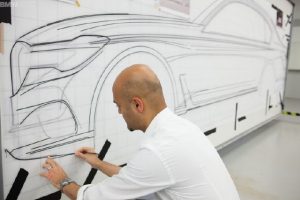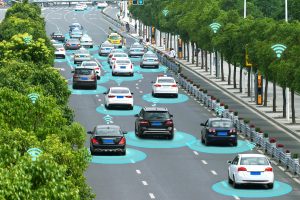 Much has been said about the ‘evils’ of Globalisation & the impact on impoverished workers resulting in Brexit in the U.K & Trumps victory over the pond. But what about the positive impacts of Globalisation which are rarely trumpeted (excuse the pun)
Much has been said about the ‘evils’ of Globalisation & the impact on impoverished workers resulting in Brexit in the U.K & Trumps victory over the pond. But what about the positive impacts of Globalisation which are rarely trumpeted (excuse the pun)
The export of manufacturing jobs from the West to Asia has undoubtedly impacted on job security in the West but what about the subsequent cost reduction in the price of consumer products.
Also, hundreds of millions of people have been lifted out of poverty in China & Asia as a result.
Those very same products are bought by the same people who moan about foreigners stealing their jobs. A TV which can be bought for £200 in a UK supermarket would cost may times that if manufactured in the UK.
Protectionism is no answer to under employment. All that will happen is the Countries affected by Tariffs will introduce their own in ‘revenge’, take the auto industry as an example.
Every car manufactured in the U.S contains hundreds of components which are made abroad. If each of these components increases in costs the unit cost of the car goes up reducing competitive advantage & ultimately the business is bankrupt.
In the end everyone loses as bureaucracy strangles innovation & the economy shrinks.
The only way to ‘protect’ jobs is by investing in education & innovation. By producing individuals who can develop & create the products & services of the future. These will be made wherever it is cheapest to do so lifting the impoverished up the socio economic ladder & increasing their own economic power.
In the UK manufacturing is only 10% of the economy but we have some of the worlds best design & development Engineers earning good salaries creating innovative products even if they are manufactured overseas.
Apple is recognised as one of the Worlds most successful & innovative corporations employing thousands in well paying jobs – but not a single iPhone is made in the USA.
‘Putting America first’ may give short term gains but will ultimately end in disaster.
chris@amberhill-associates.com
www.amberhill-associates.com
 Regardless of one’s political views it is easy to see the current mire of Brexit is a classic example of how not to manage change.
Regardless of one’s political views it is easy to see the current mire of Brexit is a classic example of how not to manage change.

 ffer irreversible & catastrophic climate change.
ffer irreversible & catastrophic climate change. Much has been said about the ‘evils’ of Globalisation & the impact on impoverished workers resulting in Brexit in the U.K & Trumps victory over the pond. But what about the positive impacts of Globalisation which are rarely trumpeted (excuse the pun)
Much has been said about the ‘evils’ of Globalisation & the impact on impoverished workers resulting in Brexit in the U.K & Trumps victory over the pond. But what about the positive impacts of Globalisation which are rarely trumpeted (excuse the pun) In the U.K today salaries have barely risen in real terms in the last decade & despite decreasing unemployment many find themselves in the precarious position of holding short term contracts with minimal security.
In the U.K today salaries have barely risen in real terms in the last decade & despite decreasing unemployment many find themselves in the precarious position of holding short term contracts with minimal security. commute we used to gather our thoughts and prepare for the day ahead is lost forever to the ever encroaching working day – whatever happened to ‘working from home’ ?
commute we used to gather our thoughts and prepare for the day ahead is lost forever to the ever encroaching working day – whatever happened to ‘working from home’ ?



